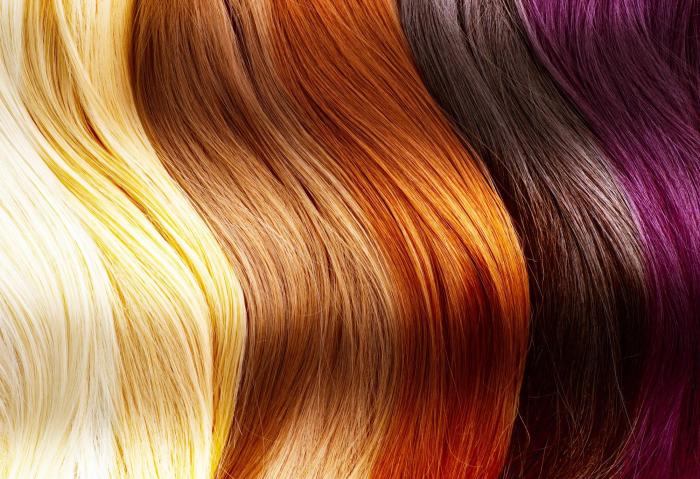After giving birth, many new mothers consider coloring their hair. The decision often stems from a desire to regain a sense of self after the physical and emotional changes that come with pregnancy and childbirth. However, there are several factors to consider before reaching for that dye. This article explores whether it’s safe to color your hair postpartum after giving birth, what types of products to use, and tips for hair care during this time.
Understanding Postpartum Hair Changes
Many women experience significant changes in their hair after giving birth. During pregnancy, increased hormones can lead to thicker, shinier hair. However, after giving birth, a drop in hormone levels may cause hair loss. This condition, known as postpartum alopecia, can lead to patches of thinning hair.
Some women may feel the need to color their hair to cover up these changes or to feel more confident. It’s essential to understand that your hair may not look or behave the same as it did before pregnancy.
Safety Concerns with Hair Dye
The safety of coloring hair after childbirth is a common concern. Most experts agree that it is generally safe to color your hair after giving birth. However, a few precautions can help ensure that you and your baby remain safe.
Choosing the Right Time
It’s usually recommended to wait until after your six-week postpartum check-up before coloring your hair. This allows your body some time to recover from childbirth. If you had a C-section, it might be wise to wait longer. During this period, you can monitor your hair’s condition and decide the best time to color.
Selecting the Right Products
When you decide to color your hair, consider the type of hair dye you use. Here are some options:
Semi-Permanent Dyes: These dyes contain fewer chemicals and are less harsh on the hair. They typically fade over time and do not require the use of ammonia.
Natural Dyes: Options like henna or vegetable-based dyes are less likely to contain harmful chemicals. They can be a safer choice for postpartum women.
Professional Help: Consider visiting a salon. Professional hairstylists can recommend safe products and techniques. They can also help you achieve the look you want without damaging your hair.
Avoiding Harmful Chemicals
Be aware that some hair dyes contain harmful chemicals such as ammonia and peroxide. These can irritate your scalp and cause allergic reactions.
To minimize exposure to these chemicals, consider:
Choosing ammonia-free dyes.
Ventilating the area where you dye your hair. If you are coloring at home, open windows and use fans to circulate air.
Wearing gloves while applying the dye.
Breastfeeding and Hair Dye
If you are breastfeeding, you may have additional concerns about coloring your hair. Fortunately, most experts agree that the chemicals in hair dye are unlikely to affect breast milk.
Safe Practices While Breastfeeding
Timing: Try to color your hair when your baby is not nursing. This way, there’s minimal risk of any dye coming into contact with your skin.
Wash Thoroughly: After coloring, make sure to wash your hair thoroughly to remove any residual dye.
Choose Natural Products: If you are still concerned, opt for natural hair dyes or henna, which are less likely to cause any adverse reactions.
Hair Care Tips After Childbirth
Postpartum is a crucial time for hair care. With the changes your body goes through, your hair needs special attention.
Nourishing Your Hair
Moisturizing Treatments: Use deep conditioning treatments regularly to help restore moisture to your hair.
Avoid Heat Styling: Limit the use of hair dryers, curling irons, and straighteners to prevent damage.
Gentle Shampoo: Use a mild, sulfate-free shampoo to prevent further drying and damage.
Healthy Diet: A balanced diet rich in vitamins and minerals can promote hair health. Include foods high in omega-3 fatty acids, proteins, and vitamins A and E.
Regular Trims
Regular trims can help get rid of split ends and keep your hair looking healthy. Even if you’re growing your hair out, a small trim can make a significant difference.
Psychological Benefits of Hair Coloring
For many new mothers, coloring their hair can provide psychological benefits. It can be a form of self-care and help boost self-esteem.
Regaining Confidence
After pregnancy, many women may feel like they’ve lost part of their identity. A new hair color can serve as a reminder of who you are outside of motherhood.
Embracing Change
Coloring your hair can symbolize embracing the changes that come with motherhood. It’s a way to express yourself and your individuality during a time that can feel overwhelming.
When to Avoid Hair Coloring
While it is generally safe to color your hair after giving birth, there are certain situations where it’s best to avoid it:
If you experience severe postpartum hair loss, it may be wise to delay coloring until your hair stabilizes.
If you have a skin condition or an allergic reaction, consult a healthcare provider before coloring your hair.
See also: What To Look For When Buying A Stroller
Conclusion
In conclusion, coloring your hair after giving birth can be a safe and enjoyable way to regain a sense of self. It’s essential to choose the right products, consider the timing, and prioritize your health and that of your baby.
Always consult with a healthcare provider if you have any concerns about hair dye and its effects on breastfeeding or postpartum recovery.
Taking the time to care for your hair can not only improve its health but can also enhance your overall well-being as a new mother. Embrace this new chapter of your life, and don’t hesitate to express yourself through your hair color!
Related topics:


